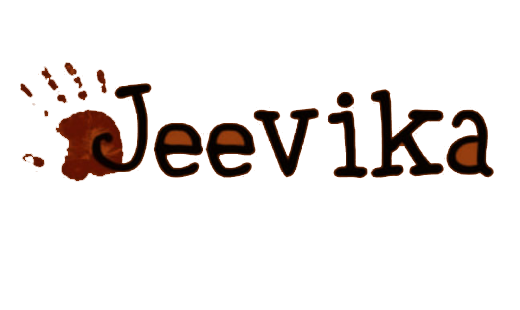| To download PDF version click here | |
| Agbalbalitok (The Gold Prospector) by Ferdinand John Balanag | |
| Duration: 1:25:00 | |
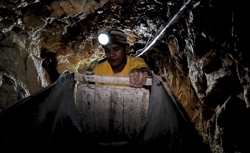 | In 1995, the Philippine government granted 100% ownership of mining investments to foreign owned companies. With mining concessions came land rights that led to the displacement of indigenous people. Entire mountains have disappeared, river systems polluted, rights to ancestral land ignored and the mining sites left abandoned. These areas in Itogon are dystopic landscapes, shaped by man’s own desires and needs. Still, it continues to be a source of livelihood for the community that continues to live and work in the area, scavenging off the remains, illegal settlers on their own land. |
| ^ Top | |
| Candles in the Wind by Kavita Bahl & Nandan Saxena | |
| Duration: 0:52:00 | |
 | Punjab—the food bowl of India—is in the news for policy induced non-remunerative agriculture and escalating farm-suicides. Women of rural Punjab have long forgotten to sing the songs of harvest. ‘Candles in the Wind’ witnesses the march of widows of the ‘Green Revolution’ as they re-negotiate the rules of engagement and the politics of domination in their bid to survive. Their struggle gives us a window into the social-economic flux in rural India—a nuanced understanding of the silent under-currents of a gender-specific struggle in the larger narrative of surviving as a farmer in these times. |
| ^ Top | |
| Dammed by Nandan Saxena & Kavita Bahl | |
| Duration: 0:63:00 | |
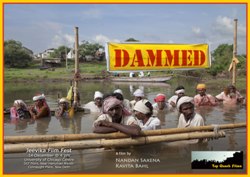 | The film questions the paradigm of Development that makes a priori assumptions that mega dams are critical to progress. It is the store of the grit and determination of the Dam-affected villagers of Madhya Pradesh, submerged neck-deep in the water of River Narmada, protesting against the apathy of the Indian government and exploitative Dam Corporation. DAMMED investigates the passing genocide of citizens, as whole lives, livelihood and property and cities are submerged. |
| ^ Top | |
| CHAR: The No-Man’s Land by Sourav Sarangi | |
| Duration: 1:28:00 | |
 | Meet Rubel, a fourteen year old boy smuggling rice from India to Bangladesh. He has to cross the river Ganga, which acts as an international border. The same river eroded his home in mainland India when he was just four. Years later, a fragile island called Char was formed within the large river. With his family and a herd of homeless people, Rubel decided to settle in this barren expanse controlled by the border police from both the countries. Rubel dreams of going to his old school in India but reality forces him to smuggle stuff to Bangladesh. After a scorching summer, dark monsoon clouds roll on, the river swells up again. We see the edges of the island cracking. Char may disappear someday but we won’t—smiles the boy. |
| ^ Top | |
| Womb on Rent by Ishani K Dutta | |
| Duration: 0:52:00 | |
 | The film follows the emotional journey of a surrogate mother from India. Right from the day she signs a ‘bond’ that puts her womb on rent, through her nine months of ‘bonded’ labor, the film depicts how globalisation and modern science is instigating situations of parenthood that mankind has never confronted before. |
| ^ Top | |
| Babai by Kavita Datir & Amit Sonawane | |
| Duration: 0:13:56 | |
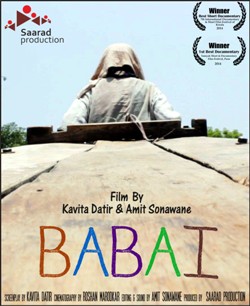 | Babai is a courageous woman who, for her daily bread and butter, transports a variety of material weighing upto 250-300kg on her handcart, even at the old age of 81 years. The documentary film brings you up close with her stressful working day and strings it together with her interview which sheds light on her philosophy of life. |
| ^ Top | |
| Ghar Ki Murgi Sone Barabar (Counting My Chicks) by Jyoti Garhewal | |
| Duration: 0:15:00 | |
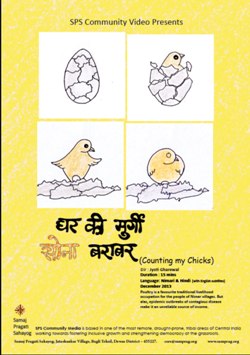 | Poultry is a favourite traditional occupation for the people of Nimar villages. But alas, epidemic outbreaks of contagious disease make it an unreliable source of income. |
| ^ Top | |
| Ghumantu (Itinerant) by Ajay Kannaujiya | |
| Duration: 0:28:35 | |
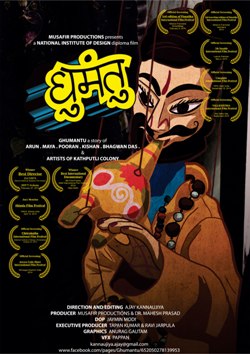 | Aptly named Kathputli, the slum area of Shadipur depot in New Delhi, is home to a myriad of third-generation performing artists—puppeteers, dancers, acrobats, snake charmers, monkey and bear handlers, jugglers, folk singers and magicians, to say the least. At the mercy of rapidly-spreading urbanisation and modern legalities, the residents will be resettled in the near future. This has spread much skepticism and anxiety among the slum-dwellers. Will they be given that which they have been promised? Will the change be for the better or worse? Today, these itinerant artists face the imminent threat of becoming obsolete from our cultural heritage. This promotional film tires to capture their lives in the face of a rising identity crisis. |
| ^ Top | |
| Poop on Poverty by Vijay S Jodha | |
| Duration: 0:07:00 | |
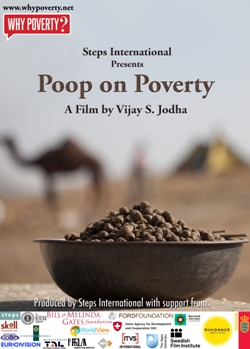 | Set on the edge of the Thar Desert and in the middle of world’s biggest camel fair, this film looks at the underbelly of one of the world’s most visited and photographed tourist destinations. In the process the film highlights the challenge of finding cooking fuel that is faced by two billion people worldwide every single day—a workload that is borne by women. |
| ^ Top | |
| Silver Gandhi by Rohit Pawar | |
| Duration: 0:10:00 | |
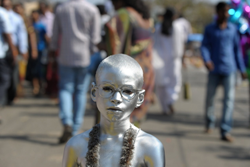 | The documentary film is about a poor ‘street family’, which makes their living by disguising children as Mahatma Gandhi (Father of The Nation – India). The film is a comment on the poverty-stricken situation of street-children and the use of Gandhiji’s image to make money. |
| ^ Top | |
| Kaansutra by Karan Dhar | |
| Duration: 0:12:45 | |
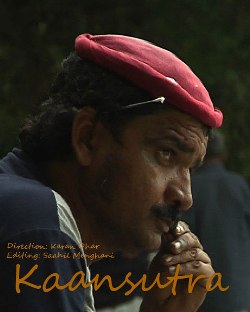 | The story takes you on a journey of an ear-cleaner as he ties his head-gear and sets out to look for patrons. Bharat Soda, in his conspicuous skull shaped red turban, roams about in search of work through the by-lanes of Connaught Place and Sarojini Nagar. While on his way hawking his age-old ear cleansing service, Soda cheerfully sings his tunes from Bollywood. He walks intermittently carrying his trademark leather sling bag on his shoulder and curling his moustache at every turn. The film tries to showcase the bleak ironies and joie de vivre spirit of Soda’s life. |
| ^ Top | |
| Bread, Butter and Garbage by Gautham Uyalla, Shruti Apsingiker & Moses John Paul | |
| Duration: 0:20:00 | |
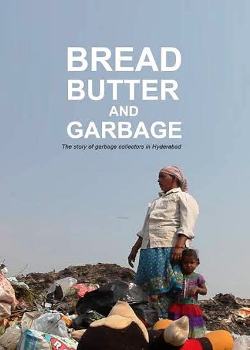 | Shot in various parts of Hyderabad, Bread, Butter and Garbage explores the grinding work and functioning of the door-to-door garbage collection in the city. The film is a testimony to how these groups of garbage-pickers, in the past 15 years, have set up their own enterprise of waste management and are completely dependent on it for survival. While they are just about to reap the fruits of their endurance and perseverance, a private group is all set to take over their business with the support of the State. The film presents the phenomenal case of how certain public-private partnership affects the livelihoods of marginalised individuals. |
| ^ Top | |
| If’s and But’s by Dishant Malik | |
| Duration: 00:08:35 | |
| In 2010 Electronic rickshaws were heralded by the Municipal Corporation of Delhi on the roads of the Capital as an affordable and environmental friendly solution to the city’s transport woes. Pitched as last-mile connectors for commuters moving into colonies off main roads, E- rickshaws caught the imagination of the pedal rickshaw pullers and most of them gave up cycle rickshaws and took up electronic rickshaws to earn their livelihood. While e-rickshaws became a preferred choice of last-mile commutation, they were also seen as a menace on Delhi’s congested roads. Their mushrooming hadeaten into whatever little space was left on Delhi’s roads, and their reckless plying had also become a problem, especially for pedestrians. Electronic Rickshaws are now banned in Delhi. It is rather strange that over 30,000 e-rickshaws plying on the capital’s roads were debarred without giving them enough time to seek alternate means of livelihood. The banning affected more than 200,000 people who were directly or indirectly earning their livelihood from these vehicles. Should the life of E-Rickshaws drivers conclude with IFS and BUTS of policy makers or should the government take concrete steps to help them earn their livelihood with respect? Ifs and Buts is a film based on the miserable condition of E-rickshaw drivers after their vehicles were banned from the Roads of Delhi. | |
| ^ Top | |
| Padmini My Love by Munmun Dhalaria, Ruchi Sawardekar, Sriram Mohan & Silja Wurgler | |
| Duration: 0:20:00 | |
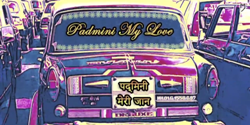 | The film emerges from a recently issued government order in Mumbai which reduced the age limit of the iconic black and yellow Padmini taxis to a maximum of 20 years. What this means is that in a few years from now, the charming yet robust Padmini taxis will have vanished from the streets of Mumbai, taking away with it the livelihood of many who depend on it for their day to day survival. The film explores the various ways in which the government-imposed age limit affects the livelihoods of the taxi drivers on the one hand and shatters a peripheral economy around the taxi on the other. The four protagonists of the film talk about issues of migrant labor, the status of taxi drivers and the importance of taxis in the city of Mumbai through their own personal narratives, thereby offering a ringside view of the changing city and its invisible workers. |
| ^ Top | |
| The Ferryman by Kaushangi Modi | |
| Duration: 0:14:52 | |
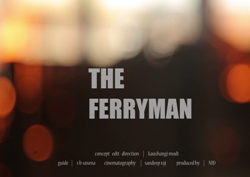 | The film depicts the life of this man who works in the smashan (crematorium). It is about what he thinks, how people think of him and what he thinks about life and other philosophies. |
| ^ Top | |
| Tichi Goshta (Her stories) by Farred Muhammed, Milanth Gautham, Ridhima Sharma, Shiva Thorat & Silja Wurgler | |
| Duration: 0:15:12 | |
| An attempt to challenge the conventional male-centric way of looking at histories. Her stories revolves around the lives of Vaishali Girkar, Sulekha Rana and Laxmi Dhamanse—all of them former mill workers. The film explores their life in the mills, their struggle after the strike of 1982 and the way in which they continue to negotiate the personal with the political. The owner of a food stall in Worli, an artist, and a broker respectively today, Vaishali , Sulekha and Laxmi are successful independent women in their own right but the mills and the great textile strike of 1982 continues to be an important part of their lives that they cannot and do not wish to forget. In fact, theirs is also a struggle to keep the legacy of the mills alive. | |
| ^ Top | |
| To download PDF version click here | |
